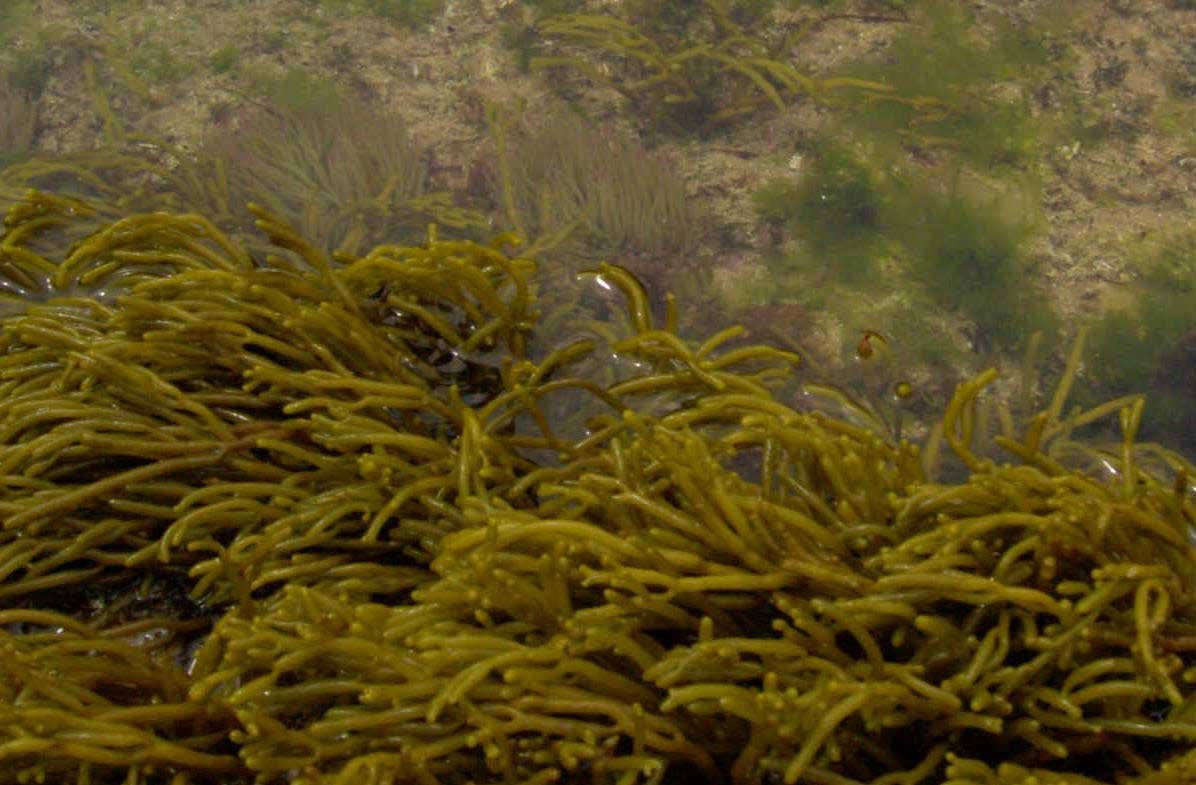Biologists and doctors state with confidence that algae outperform all other plant species in the content of active substances.
The qualitative and quantitative content of macro and microelements in algae resembles the composition of human blood, and also allows us to consider seaweed as a balanced source of body saturation with minerals and microelements.
Algae contain a series of substances with biological activity: lipids rich in polyunsaturated fatty acids; chlorophyll derivatives; polysaccharides: sulfated galactans, fucoidans, glucans, pectins, alginic acid, as well as lignins, which are a valuable source of dietary fiber; phenolic compounds; plant sterols enzymes, vitamins, carotenoids, macro and microelements. As for individual vitamins, trace elements and iodine, there is more in algae than in other products.
Brown algae contain vitamins, minerals, amino acids, mucus, polysaccharides, alginic acids, stearic acid. The minerals that brown algae absorb from water in large quantities are in an organic colloidal state and the human body can absorb them quickly and freely. Very rich in iodine, most of which is in the form of iodides and organic iodine compounds.
Brown algae are rich in manuronic acid and give high viscosity alginates and mannitol, which is related to hexatomic alcohols and is widely used in medicine and cosmetology.
Brown algae are an excellent source of natural organic iodine. Iodine is an essential trace element for humans. Iodine is necessary for the synthesis of thyroid hormones, which control the development and functioning of the brain and nervous system, and maintain normal body temperature. The low level of these hormones can negatively affect both the physical condition and the intellectual abilities of a person. Iodine is also necessary for a day of normal mental development, especially in early childhood. When iodine is used, there is a decrease in blood cholesterol in patients with atherosclerosis. Foods rich in iodine will increase longevity. Algae Brown algae adsorb most of the toxic substances of the gastrointestinal tract, reduce cholesterol, so iodine has proven effective in the treatment of obesity and atherosclerosis.
Brown algae have antibacterial properties due to the presence of bromphenol and floroglycinol. Due to the high content of polyphenols, brown algae have an anti-radiation effect. Brown algae help eliminate toxins, radionuclides and heavy metal salts from the intestines, help with nervous disorders, reduce the symptoms of premenstrual syndrome, normalize cardiac function and improve the general condition of the body. Brown algae delay the development of atherosclerosis and reduce blood cholesterol. The polysaccharides contained in brown algae have the property of swelling and, by increasing their volume, irritate the nerve endings of the intestinal mucosa, which stimulates intestinal motility and helps clean it. Polysaccharides also bind to toxins and remove them from the body.
Algae have anti-tumor properties, as they use not only as an excellent food product, but also as an effective tool for the prevention and treatment of various diseases, as well as malignant tumors, being an effective tool in the fight against some diseases of the endocrine glands
Brown algae contain a bromophenol compound that affects pathogens, especially bacteria. Brown algae contain a large amount of macro and micronutrients necessary for humans (iron, sodium, calcium, magnesium, barium, potassium, sulfur, etc.), and in the form of chelate that is more accessible for assimilation. Brown algae have a number of physiological properties: they affect the contractility of the heart muscle, they have antithrombotic activity, they prevent the development of rickets, osteoporosis, tooth decay, brittle nails, hair and have a general strengthening effect on the body. As marine food, brown algae contain those natural elements that are found in small amounts in vegetables. Brown algae help the immune and endocrine systems to resist stress, prevent disease, improve digestion, metabolism and general well-being.

